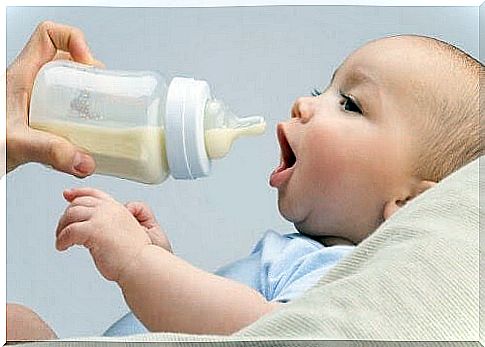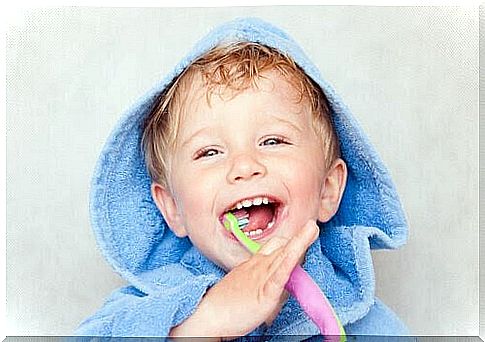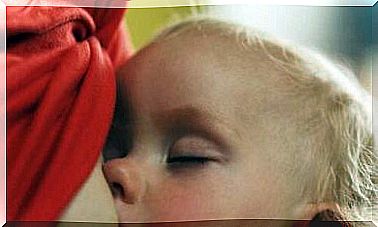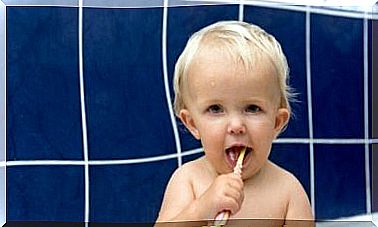How To Avoid Holes In The Teeth Of The Baby Bottle?

Did you know that children can get holes in the teeth of the baby bottle? Infants who spend a large part of the day with the baby bottle in their mouth, sometimes without drinking, are more likely to develop caries.
The resulting discomfort may cause the child to refuse to eat and have little appetite. It can make faces or get goosebumps when eating.
Many parents are not aware that holes in the teeth of the baby bottle pose a threat to the infants getting adequate nutrition.
Can you really get holes in the teeth of the baby bottle?
Children under the age of one who use a baby bottle too much, at the same time as they have poor eating habits and poor oral hygiene, can get cavities in their teeth.
These holes can cause pain, extreme sensitivity to cold or hot food and general eating problems.

What steps can I take to prevent my baby from getting holes in the teeth of the baby bottle?
To prevent your child from getting cavities in their teeth, it is important to follow these recommendations:
- Do not let your baby develop a habit of using his baby bottle as a pacifier. The bottle’s rubber stopper is impregnated with milk, juice and other beverages, and having it in your mouth for too long can cause caries. Some children may get used to sleeping with a baby bottle in their mouth. This is especially dangerous.
- Avoid giving your child sweet drinks and foods. Many parents give in to dipping their baby’s baby bottle or pacifier into something sweet to calm him or her down. Whether it is honey, syrup, sweetened condensed milk or any other sweet liquid, it is not good. It not only contributes to cavities but also diabetes, obesity and many other health problems in the future. Also avoid giving sweet drinks, such as juice or rosehip soup, in the baby bottle as it is very harmful to the teeth.
- Give your child plenty of water. Water is the best medicine for the body and has the power to help eliminate bacteria that accumulate in your baby’s mouth. Talk to your child’s doctor to find out exactly how much water is suitable for your little one, depending on his or her age. Remember that children under 6 months should not drink water, but only breast milk or substitutes.
- Take your child to the dentist regularly. Even if your child is small, a visit to the dentist is never a bad idea. If you also suspect that your child may have cavities in their teeth, it is very important that you talk to a specialist. If you have not received a summons to the public dental care, you can take it up with BVC so that they can guide you further.
Oral and dental hygiene: The best method to avoid cavities in the teeth of the baby bottle
In addition to the measures mentioned above, the most effective method of avoiding cavities in the large and small teeth is good oral and dental hygiene.
However, getting a small child to follow a hygiene routine for the teeth and mouth can be a challenge. As a parent, you need to work hard and make sure you take care of and check your child’s mouth regularly.

If your child is very small and his teeth have barely appeared, it is still important that you clean his or her mouth, tongue and gums with a damp cloth.
If your little one already has teeth, you should brush them with a very soft toothbrush. Brush the first thing you do in the morning and just before the baby goes to bed.
When brushing the lower row of teeth, move the brush upwards in gentle movements. Brush down as you brush your teeth in the upper row of teeth. Follow this rule of thumb for both the outer and inner sides of the teeth.
It protects the gums and keeps your baby’s teeth clean. It is also best to use toothpaste with fluoride, as this helps to preserve the enamel of the teeth.
However, you should talk to your child’s doctor first, and use only a small clique of toothpaste at each brushing (less than a grain of rice).
Taking care of your child’s oral and dental health from an early age helps prevent cavities. If you help your child to adopt good habits, you will soon see that he or she will get used to it and it will lead to good dental health throughout life.









